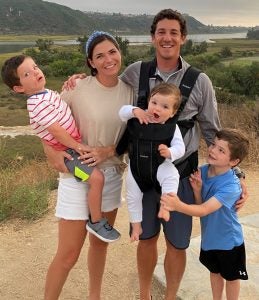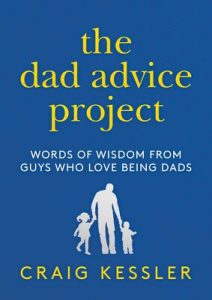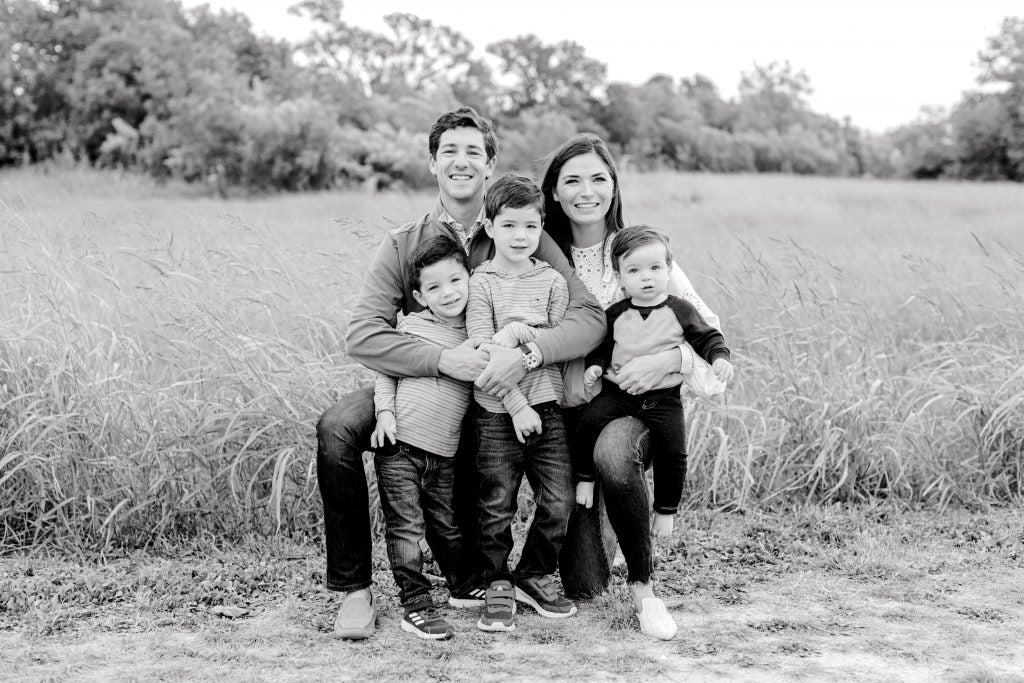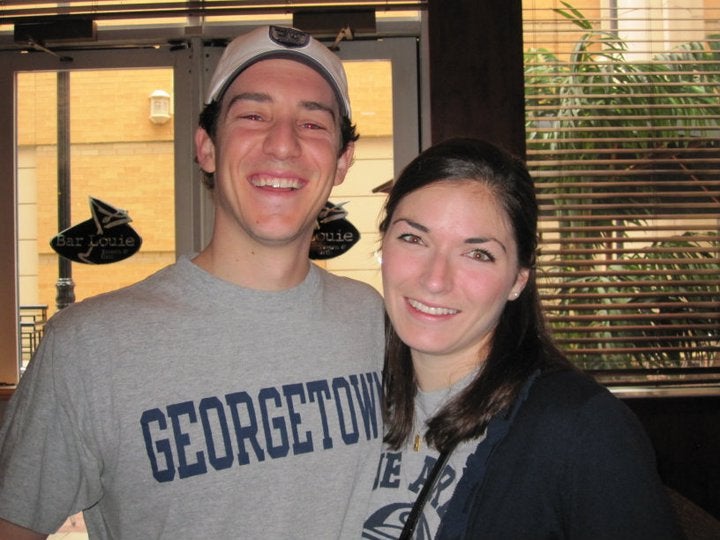
A graduate of the Walsh School of Foreign Service and Harvard Business School, Craig Kessler (SFS’07) is no stranger to a challenge. After starting his career in consulting and private equity, Kessler had the opportunity to become COO of Topgolf, one of the fastest-growing sports and entertainment companies in the world.
Kessler credits his success at Topgolf to a supportive network of friends and mentors. After he and his wife Nicole became parents to three young boys, Kessler realized he would need to take a similar approach to the challenges of parenting. He reached out to a handful of friends, asking them to write him a letter on “how to be a good dad.”
Now, Kessler is publishing an expanded collection of letters from more than forty dads from all walks of life in his upcoming book, The Dad Advice Project: Words of Wisdom from Guys Who Love Being Dads. He hopes that the letters will inspire readers and parents as much as they have inspired him and those closest to him. SFS spoke to Kessler about the interview and writing process and what he has learned since embarking on this project.
What inspired you to turn the first few letters of this project into a full-fledged book?
As my friends and colleagues learned about the project, they universally asked to read what others had written. Turning the project into a book became an obvious way to share the collection of wisdom from these amazing dads.

What’s one of the interviews you were most excited to land, and what did you learn from it?
The piece written by [former CIA Director] George Tenet (SFS’76) — a Georgetown alum — has tremendous meaning for me. Director Tenet was a professor of mine and to this day remains one of my most trusted friends and mentors. From his submission, I was reminded of the importance of staying patient and creating psychological safety for those we love.
What are some of the biggest lessons and themes that have emerged from putting this book together?
This project highlighted for me that all dads, in a sense, are on a similar playing field. We all start our fatherhood journey from scratch. We all struggle with similar issues. Yet we all light up when asked to talk about raising kids.
After reading the submissions, two types of advice clearly emerged. The first are pieces of advice that show up with high frequency — teach your kid it’s OK to fail; love and treat their mother with respect. Perhaps these common pieces of advice are obvious, but for me, it was a nice reminder to keep the guidance top of mind. The second type of advice is a collection of one-off, unique family traditions — many of which we’ve already adopted as a family. Crowdsourcing and trying out these unique tips and tricks has been a fascinating ride.

What advice or reflections do you think The Dad Advice Project offers that other parenting books might not?
There are countless stories from so many different perspectives. In total, The Dad Advice Project provides a combination of vulnerability and pattern recognition that I’ve never seen before in a parenting book.
How has the experience of writing this book changed your approach to parenting?
Above all else, the project has taken what was once a group of personal friends and turned them into a network of dads that are thrilled to support one another. As I run into interesting parenting crossroads, I now have a group of 42 dads that are eager to go deep with one another.
How do you think your time at SFS impacts your approach to your family and your career?
Georgetown opened my eyes to the world in so many ways. My experience on the Hilltop taught me the importance of building friendships, how to think critically, how to attack problems from different angles.
It also gave me an appreciation for finding joy in life. My favorite memories happened on the Village A rooftops, in the bowels of the Tombs, on Healy Lawn during the Spring Kickoff Concert — and people were at the heart of all of these experiences. These experiences were a large part of what inspired me to bring a group of dads together for the The Dad Advice Project.
